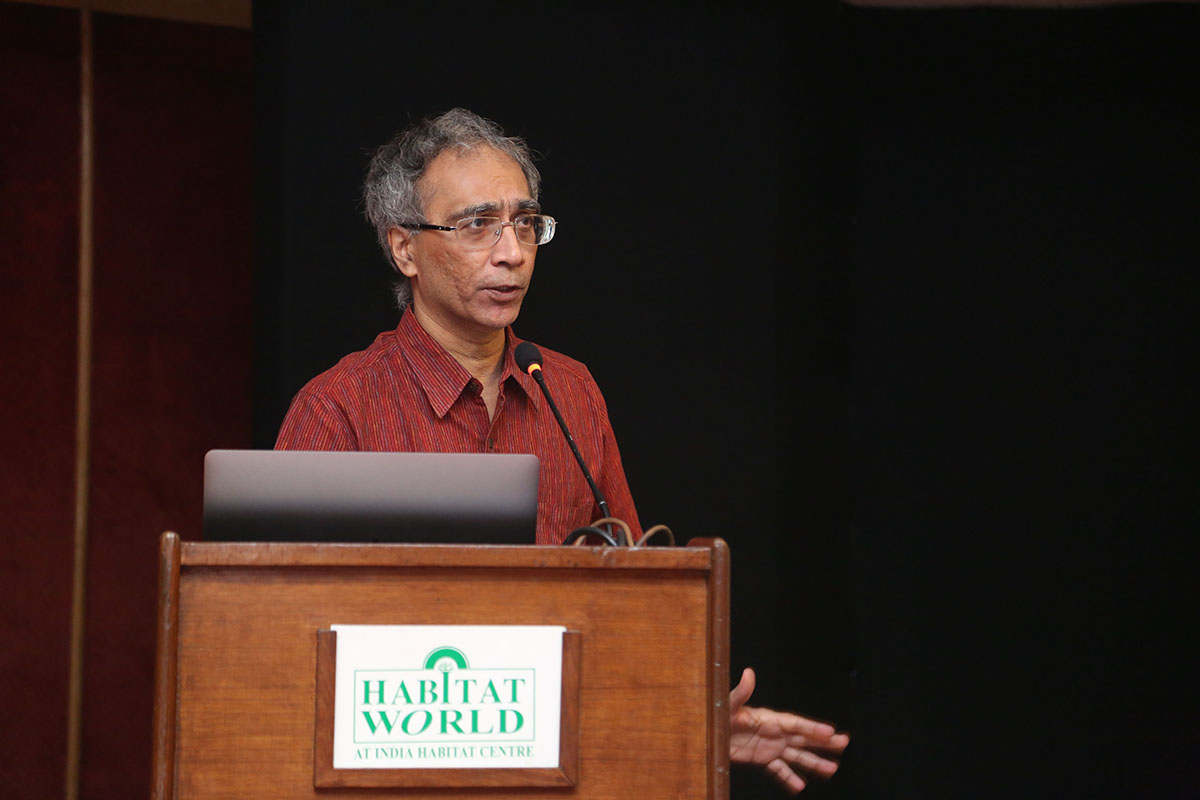Submitted by Tanya Khanna
Recapitulation: Rain Water Harvesting in Cities
India Architecture News - Sep 23, 2019 - 16:05 9844 views

As scarcity of natural resources nears a critical point, it becomes increasingly crucial to tap into future-forward solutions to manage our collective inheritance.
Held on 28th May, 2019 at the India Habitat Centre, the 46th Talk in the Series focused on remote and streamlined management of shared resources, as exemplified by SimTanka, an open source software that helps design and maintain rainwater harvesting systems.
The key speaker at the event was Dr. Vikram Vyas – a theoretical physicist by practice, his interests lies in developing mathematical tools and models that can facilitate reliable and sustainable use of water and energy resources. In his talk, Dr. Vyas pointed out that‘in 50 years, half the glaciers feeding the Sutlej River are going to disappear. Optimizing rain water harvesting systems is where our hopes lie to reduce the stress on not only the Sutlej but all open sources of water. It's about time we rethink our water needs.”
Harnessing the power of modern technology to equip citizens with the skills to maintain and monitor their own resources, SimTanka is a first-of-its-kind interface in the country that simulates rainwater harvesting in fluctuating precipitation conditions. Through the means of the app, Dr Vyas illustrated the various considerations that the individual could keep in mind – size of household, budgetary restrictions, and lifestyle requirements – to determine their specific water needs.
Offering a self-operated, community-maintained and accessible digital intervention, Dr. Vyas’s initiative takes the onus of preservation to the grassroots level – restoring the ownership of collective resources to the collective itself.
Chair: Ajit Foundation, collab. Greha
Communications Partner: Epistle Communications
About Architecture and Society Talk Series
'Architecture and Society' talk series is a monthly forum organised by Greha in collaboration with Epistle Communications - at the India Habitat Centre. Each month, the forum invites architects, urban practitioners, academicians and research scholars from the entire country to talk about their work. The intent of the forum is to gather students, practitioners and the public of Delhi in one space where discussions on the future of the built environment in India can take place.
About Greha
Since its inception in 1974, Greha has concentrated on the growth of knowledge in the field of environmental development, habitat design and architecture. The thrust of Greha's efforts have been towards addressing issues of the majority of the population; the focus was the marginalised people in rural and urban settlements; the vehicle was developing knowledge and methodologies concerning settlement systems more suited to our history and cultural context.
The founder members, during the early stages of their professional careers, would meet periodically to engage with majority concerns, away from the routine of the practice.
These concerns led them towards working with the poor and marginalised people in Indian society and eventually to the establishment of a school of habitat studies.
Greha registered in 1986 as a non-government, not for profit society, with the aim of generating a body of ideas, involving diverse professional talent and promoting expert contribution in development projects undertaken by public agencies.
About Epistle Communications
Epistle is a communication consultancy providing bespoke, strategic consulting services for architecture, design, planning and allied disciplines.
Follow Greha on Facebook, LinkedIn
Follow Epistle Communications on Facebook, LinkedIn, Twitter, Blog
Top image courtesy of Greha
> via Greha
